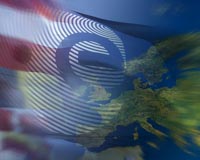 |
Daejeon, South Korea (ESA) Oct 13, 2009 The 60th International Astronautical Congress has officially opened in Daejeon, South Korea. The Daejeon Convention Centre, under the aegis of the Korea Aerospace Research Institute and the International Astronautical Federation, is this week welcoming some 3000 space experts from more than 70 countries. Space agencies, scientific institutes, aerospace associations, large and small firms involved in space activities, and students all have the opportunity to share their experiences and new ideas. The International Astronautical Congress (IAC), running 12-16 October, provides opportunities for networking and business interaction in space, science and technology by hosting a large variety of Technical Sessions and exhibitions. IAC 2009 Daejeon was officially opened by Lee Joo-jin, President of the Korea Aerospace Research Institute (KARI) and Bernndt Feurenbacher, President of the International Astronautical Federation (IAF), in the presence of Lee Myung-Bak, President of the Republic of Korea. ESA's Director General, Jean-Jacques Dordain, and a delegation of Agency specialists in various fields are taking part in this international event. The first plenary session saw the participation of the leading Heads of Agency: Charles Bolden of NASA (USA), Jean-Jacques Dordain of ESA (Europe), Joo-Jin Lee of KARI (Korea), Steve MacLean of CSA (Canada), G. Madhavan Nair of ISRO (India), Anatoly Perminov of Roscosmos (Russia) and Keiji Tachikawa of JAXA (Japan). This session provided an overview of current space programmes and an insight into plans, with the participants exchanging views on developments and potential opportunities for closer international cooperation. The session ended with an interactive discussion with the audience. Traditionally, the IAC offers an opportunity for ESA's Director General to meet his counterparts and discuss cooperation. Several bilateral meetings with ESA's international partners will be held, including a meeting with the KARI President. Young professionals and students will be under the spotlight during the second plenary, on Monday afternoon: 'Entering the workforce, strengthening the global community.' The panel will include four students and three young professionals from Asia, Europe, South America, Australia and North America sharing their accomplishments and hopes for the future. ESA has again offered university students a unique opportunity to attend a major space gathering. In all, 18 European students, selected on a competitive basis after submitting papers, are attending. Throughout the Congress and a dedicated student programme, they will be able to interact with the experts, listen to their views and hear about the latest developments in space science and the space industry. Plenary 3 on Tuesday 13 October will feature CEOs from industry and Heads of Agency, who will exchange views on the impact of the current economic situation, leading to a discussion of how the space sector can stimulate new services and development activities for business. Civil access to space, space systems to observe and understand climate change, human lunar exploration, space science and astronomy, space-debris mitigation, teaching, education and training will be the topics analysed in the other plenary sessions throughout the week. In addition, four Highlight Lectures will enrich the proceedings: Space helps to preserve world heritage; Policies for green growth; Migration path from Korea to Japan identified by Earth observation data from space; What it's like being an astronaut. South Korea has become a player on the international space scene relatively recently. It set up its own space agency in 1980 and defined its first space plan in 1996. Thanks to cooperation with the world's leading spacefaring nations, it is now able to build satellites almost autonomously. The country looks mainly to the government to develop its space industry, in particular the Big Science division of the Ministry of Education, Science and Technology. KARI, under that Ministry, forms the heart of national space activity. In charge of development of the majority of space programmes (satellites and launchers), it steers the other research institutes and oversees the industrial network. Share This Article With Planet Earth
Related Links IAC 2009 Daejeon The latest information about the Commercial Satellite Industry
 Turning Space Technology Into Business
Turning Space Technology Into BusinessParis, France (ESA) Sep 25, 2009 For the fifth time, ESA hosted this month the one-week CEMS kick-off seminar for students from leading European management schools to learn about technology transfer and what it takes to turn space technology breakthroughs into viable non-space businesses. Organised by ESA's Technology Transfer Programme Office in cooperation with ESA Human Spaceflight's Erasmus Centre as well as the ... read more |
|
| The content herein, unless otherwise known to be public domain, are Copyright 1995-2009 - SpaceDaily. AFP and UPI Wire Stories are copyright Agence France-Presse and United Press International. ESA Portal Reports are copyright European Space Agency. All NASA sourced material is public domain. Additional copyrights may apply in whole or part to other bona fide parties. Advertising does not imply endorsement,agreement or approval of any opinions, statements or information provided by SpaceDaily on any Web page published or hosted by SpaceDaily. Privacy Statement |